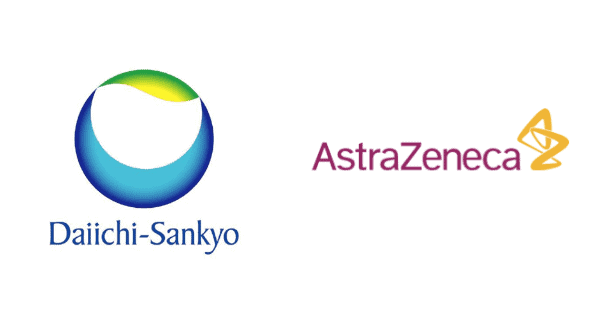
AstraZeneca’s big bet on a Daiichi Sankyo-developed HER2-targeting antibody-drug conjugate looks like its about to pay off, after delivering some impressive results in phase 2.
The phase 2 Destiny-Breast01 study investigated trastuzumab deruxtecan in HER2-positive metastatic breast cancer patients, who had already received two or more prior HER2-targeting therapies.
For these late-stage patients, who have little treatment options left, the results are significant. Objective response rate reached 60.9% in patients treated with the ADC as a monotherapy, who had already received a median of six prior treatments for their metastatic disease.
On top of that, patients also achieved a disease control rate of 97.3% with a median duration of response of 14.8 months, and median progression-free survival of 16.4 months.
Although median overall survival had not yet been reached, AZ estimates a survival rate of 86% at one year – these results were consistent across all patient subgroups.
 “The clinically meaningful and durable responses seen among these patients illustrate the potential of trastuzumab deruxtecan to establish a new standard of care,” said José Baselga (pictured left), executive vice president of oncology R&D at AZ.
“The clinically meaningful and durable responses seen among these patients illustrate the potential of trastuzumab deruxtecan to establish a new standard of care,” said José Baselga (pictured left), executive vice president of oncology R&D at AZ.
“These results are impressive, as women with this advanced stage of breast cancer have already endured multiple prior therapies for HER2-positive metastatic breast cancer,” he added.
The catch of this otherwise spotless data-set is the drug’s safety profile – 13.6% of patients experienced confirmed treatment-related interstitial lung disease. Four deaths (2.2%) occurred due to ILD, making it clear that the drug can cause serious toxicities.
Although this could lead to a potential black-box warning on the label if the drug is approved, the benefit of a 60.9% response in patients who have already been through numerous treatments will likely outweigh the possible side-effects.
AZ paid $1.35bn upfront in a deal worth $6.9bn to add Daiichi’s ADC to its fast-growing cancer business.
The partners picked up a priority review for the drug from the FDA in October, on the strength of data from the Destiny-Breast01 trial.
Its nearest rival in the area is Roche’s anti-HER2 ADC Kadcyla (trastuzumab emtansine). Both drugs work by combining the HER2-targeting of trastuzumab with a cell-killing chemotherapy component designed to improve its ability to kill breast cancer cells.
AZ/Daiichi’s drug is thought to be a more potent ADC than Roche’s drug because it carries a topoisomerase inhibitor rather than Kadcyla’s tubulin inhibitor – and that means it can carry a greater cytotoxic payload.
Kadcyla is the smallest in terms of sales in Roche’s HER2 franchise, with its sales falling behind those of Herceptin (trastuzumab) and Perjeta (pertuzumab).
Although AZ/Daiichi’s drug would be used a ways down the treatment pathway if approved, the partners have additional trials for the ADC in order to move it into earlier lines of treatment, to become a direct challenger to Roche’s Herceptin/Perjeta combination.
Also looking to encroach on the HER2 market is Seattle Genetics, with its orally-active HER2 inhibitor tucatinib.
Its HER2CLIMB trial evaluated the drug as an add-on therapy to Herceptin and Xeloda (capecitabine), a standard regimen for HER2-positive breast cancer patients who have already been treated with Herceptin, Perjeta and Kadcyla.
AZ and Daiichi Sankyo are looking at a possible approval for their drug in the second quarter of 2020.




